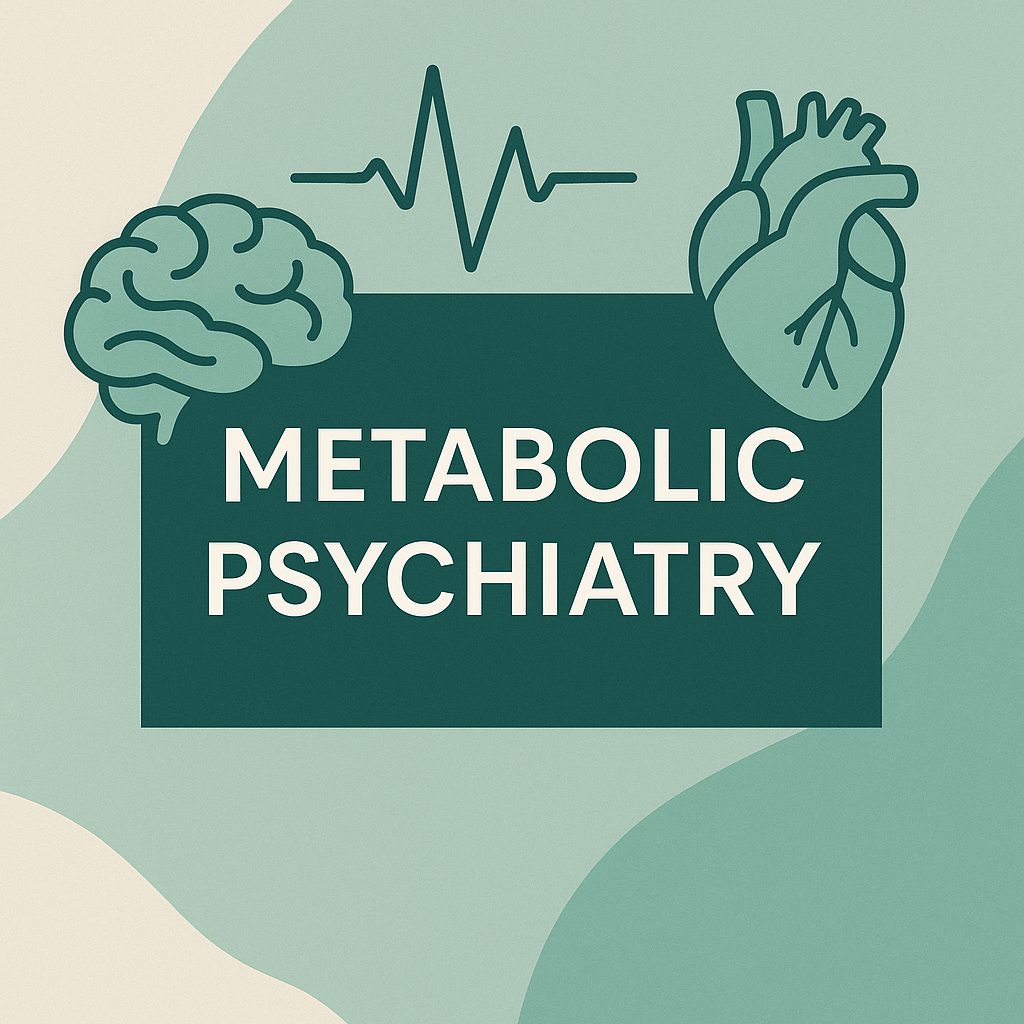What is Metabolic Psychiatry?

Exploring the Mind–Body Connection in Mental Health
In recent years, the field of metabolic psychiatry has emerged as an exciting new approach to understanding and treating mental health conditions. Unlike traditional psychiatry, which focuses mainly on neurotransmitters and psychotropic medications, metabolic psychiatry emphasizes the role of metabolism, energy balance, and biochemical pathways in shaping psychiatric symptoms and overall brain health.
Defining Metabolic Psychiatry
Metabolic psychiatry views the brain as an organ deeply tied to the body’s metabolic processes. This approach suggests that disruptions in energy metabolism, mitochondrial function, insulin signaling, and nutrient pathways may contribute to the onset and severity of psychiatric conditions such as depression, bipolar disorder, schizophrenia, and anxiety (Barch, 2023).
Essentially, it asks: How does the way our body processes energy impact our mood, cognition, and resilience?
The Science Behind It
1. Tryptophan Metabolism and Mental Health
One of the most compelling areas of evidence in metabolic psychiatry involves tryptophan metabolism, a key pathway for producing serotonin and kynurenine metabolites. Alterations in this pathway have been linked to neuroinflammation, oxidative stress, and excitotoxicity, all of which are implicated in psychiatric disorders. Recent research highlights the possibility of mechanism-oriented therapies targeting tryptophan metabolism as a way to improve neurological and psychiatric outcomes (Li et al., 2022).
2. Metabolic Dysfunction and Psychiatric Disorders
Disruptions in glucose metabolism, lipid regulation, and mitochondrial efficiency have also been associated with psychiatric illness. A growing body of evidence shows that metabolic disturbances can worsen symptoms and may even serve as risk factors for developing conditions like cognitive decline, depression, and schizophrenia. Addressing these metabolic changes—through lifestyle interventions, diet, or targeted treatments—could represent a breakthrough in psychiatric care (Atti, 2024).
3. Integrative and Preventive Potential
Metabolic psychiatry doesn’t seek to replace traditional psychiatry but to expand it. By integrating metabolic health into psychiatric treatment, clinicians can develop more personalized and preventive strategies—for example, using nutritional psychiatry, exercise interventions, or medications that improve metabolic and brain function simultaneously (Barch, 2023).
Why It Matters
Metabolic psychiatry represents a paradigm shift. It reframes mental illness not just as a disorder of the mind but as a whole-body condition influenced by energy production, inflammation, and biochemical balance. This perspective encourages collaboration between psychiatry, endocrinology, nutrition, and neurology, paving the way for more comprehensive and effective mental health care.
Conclusion
The evidence is clear: metabolism and mental health are deeply connected. By exploring pathways like tryptophan metabolism and understanding how metabolic dysfunction impacts the brain, metabolic psychiatry offers a powerful framework for advancing treatment. While more research is needed, the growing evidence base highlights the potential of this field to transform psychiatric care into one that is not only brain-focused but truly whole-body in scope.
References
-
- Barch, D. M. (2023). Metabolic psychiatry. Biological Psychiatry Global Open Science, 3(4), 580-581.
- Li, D., Yu, S., Long, Y., Shi, A., Deng, J., Ma, Y., … & Ao, R. (2022). Tryptophan metabolism: Mechanism-oriented therapy for neurological and psychiatric disorders. Frontiers in Immunology, 13, 985378.
- Atti, A. R. (2024). Exploring the association between metabolism and psychiatric disorders. Frontiers in Psychiatry, 15, 1456763.